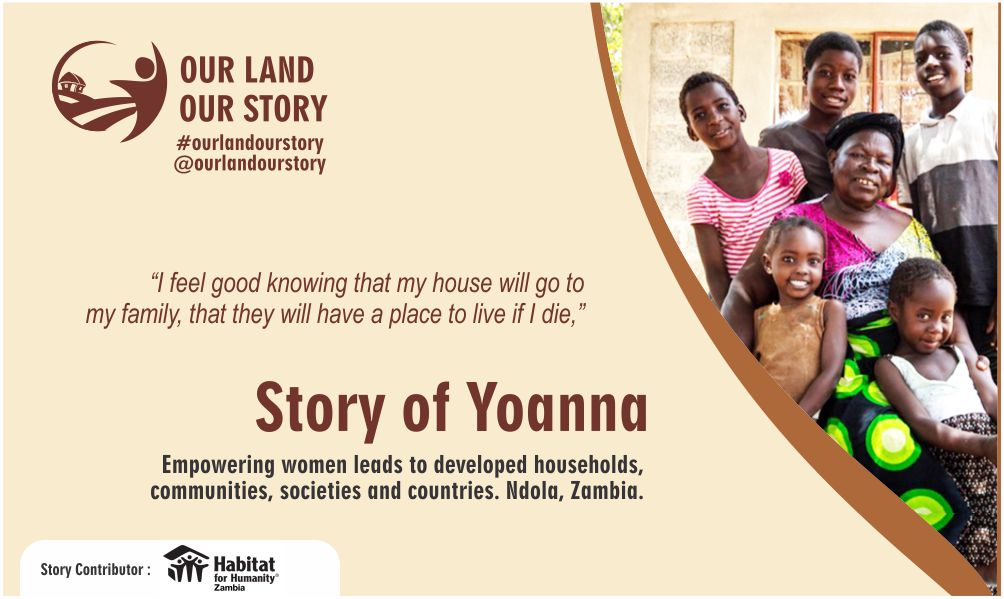
“When you are able to empower a woman, you are able to have a developed household, a developed community, a developed society, a developed country.”
With the help of Habitat for Humanity Zambia, Yoanna has written a will to secure her family’s future. “I feel good knowing that my house will go to my family, that they will have a place to live if I die,” says Yoanna, who cares for her 10 children and grandchildren. Through Habitat’s Solid Ground global advocacy campaign, Habitat Zambia is helping Yoanna and other families, particularly those headed by women to win secure rights to their land.
“When talking about the land tenure system in Zambia, we are focusing mainly on the women’s land rights because they are not as strong as they should be,” says Mweene Chaambwa, advocacy and policy research specialist with Habitat Zambia.
Without a will, families like Yoanna’s can fall victim to “land grabbing,” a common practice where distant relatives try to claim property following a death. Additionally, many families in Zambia do not have documents proving that they even own their property, making them vulnerable to unlawful evictions. Habitat Zambia is working with local governments to provide these families with official documentation of land ownership. As a result, more than 3,000 residents in the city of Ndola have been granted such documents. Habitat Zambia also facilitates advocacy skills training to empower women to know their land rights and to claim them.
All Zambians benefit from these efforts, Chaambwa says. “When you are able to empower a woman, you are able to have a developed household, a developed community, a developed society, a developed country.”
Story contributed by Habitat for Humanity Zambia
